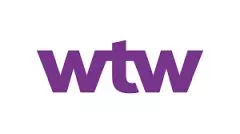- within Employment and HR topic(s)
The Employee Welfare Fund, Thailand's much-anticipated financial safety net for employees, is set to launch in late 2025, bringing new contribution requirements for employers and their workforces.
Employer Action Code: Act
The long-awaited implementation of the central Employee Welfare Fund (EWF), which was prescribed by the Labor Protection Act of 1998 but has gone unfulfilled for over a quarter of a century, is now scheduled to take place in late 2025. The main aim of the EWF is to provide employees with a financial safety cushion in case of loss of employment or death.
Key details
The government recently passed three decrees with key implementation guidelines for the EWF, as follows:
- All companies with 10 or more employees will be required to register their employees with the EWF as of October 1, 2025, unless the employer offers a qualifying provident fund or a comparable level of termination or death benefits.
- Minimum contributions to the EWF are set for employers and employees at 0.25% of wages each, increasing to 0.50% each on October 1, 2030. The government will provide additional funding by direct subsidies and through administrative fines.
- The EWF will be established by the Department of Labor Protection and Welfare and governed by a board of directors with members from the Labor and Finance Ministries, the National Economic and Social Development Board, the Bank of Thailand, and five representatives (each) of employers and employees.
- Accrued EWF account savings will be payable to employees on termination of employment for any reason or to designated beneficiaries in case of death.
Employer implications
Most of the employers in Thailand surveyed by WTW (81%) offer some form of supplemental retirement benefit to their employees, in the majority of cases a defined contribution provident fund jointly funded by the employer and employees. Many of these plans may satisfy some or all of the criteria for exemption from participation in the EWF; however, employers should review their plan rules to ensure compliance. For example, only a third of the plans surveyed enroll employees from the start of service, in most cases waiting until after the probationary period (four months at the median) is completed. A majority of plans also have vesting requirements for employer contributions. Employers that offer a provident fund may want to consider the potential advantages of participating in the EWF versus making any changes to their plan necessary to qualify for the EWF exemption.
The content of this article is intended to provide a general guide to the subject matter. Specialist advice should be sought about your specific circumstances.


